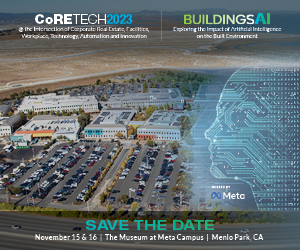Realizing the Promise of AI: 11 Current Applications in Real Estate

The real estate industry is not known for embracing new technologies, but no one understands unlocking potential like we do. Still, the gap between potential and practical applications for artificial intelligence (AI) and automation remains a deterrent to wider adoption. A brighter tomorrow is fun to imagine, but you have real work now that needs doing today.
Some good news: not all AI is stuck in a potential future limbo. Practical applications exist today, and can help your team do more with less. Here’s an overview of how to leverage AI and automation in everyday real estate use cases.

Hand Work or Head Work? The Hierarchy of Cognitive Automation
If AI and automation sound like overkill for your day-to-day operations, it’s likely because examples with the most airtime are often visually arresting and sophisticated, or get conflated with the idea of a super intelligence.
AI in the workplace is more down to earth. It’s not all ChatGPT acing the MCATs or Midjourney-generated fantasy landscapes. What AI can do in real estate might look less flashy, but will help you become more productive.
Automation with some artificial intelligence – or cognitive automation – exists on a spectrum. The spectrum goes from mostly manual (or “hand work”) to mostly conceptual (or “head work”) tasks. The right amount of intelligence merely depends on the task at hand. So which tasks can you automate with the help of AI?
AI & Automation in the Real Estate Front Office
Success in real estate often hinges on relationships, but the front office (sales and tenant relations) can greatly benefit from automation-driven efficiencies and AI-powered personalization.
Here are some current examples:
- Digital Receptionist – chatbots already commonly used for sales and support in other industries, chatbots with pre-determined chat flows and decision trees can respond to frequently asked questions about your property or business. If you have the information somewhere, it can be turned into a chat reply.
- Services Management – ordering services and managing HVAC can still be done in person, or through portals, but thanks to increasingly smarter devices, like learning thermostats, occupancy sensors, anything that connects to the Internet of Things (IoT), your heating and cooling can schedule their own maintenance and repairs, lighting and security can be adjusted based on pre-set conditions and adapt to different levels of occupancy and energy consumption preferences.
- Rental Inquiries – pre-screening questions for applicants can be delivered and answered via chat and chatbots, and even be used to suggest properties and schedule viewings based on previously indicated criteria.
- Facility Reservations – with remote work and distributed teams firmly entrenched in our new normal, platforms for scheduling and reserving meeting spaces and reshuffling schedules and locations can handle what used to require multiple phone calls, cross-checking calendars, and resolving double booked conference room mishaps.
AI & Automation in the Real Estate Back Office
Essential daily operations in your back office depend on a lot of institutional expertise and managing an endless flow of documents and information. All of this boils down to data – all of which AI can treat as annotations to help it learn.
- Credit Agreements & Contracts – legal review can be automated and streamlined using AI to quickly and efficiently analyze legal documents and extract key information to aid in decision making, helping accelerate transactions and removing bottlenecks.
- Accounts Receivable – AR automation platforms remove busywork from your collections process to accelerate cash inflow and give you more visibility and predictability around cash flow and free up sales and finance to focus on relationship management.
- Tax Notices – while your accounting department isn’t going to be replaced with AI anytime soon, automated AI solutions focused on detecting tax risk, ensuring compliance, or automating wide-scale changes that impact pricing or payroll can save a lot of time and also reduce the risk inherent in human error, further minimizing your exposure.
- Accounts Payable – AP automation is evolving from BRM to a true AI space. While AP automation platforms like Yardi Payscan and Nexus Payables have perfected AP approval workflow automation, companies like PredictAP are automating the front end of the accounts payable invoice capture processes to remove manual data entry and turn siloed institutional knowledge into centralized, usable data.
- Side Letters – Private equity is increasingly using AI and automation to compile and make actionable data that used to take months to collect, analyze, and turn into decisions. Contract management focused AI can tackle compliance, help keep on top of investor obligations, generate reports, and identify opportunities for gaining a competitive advantage.
- Lease Abstraction – AI tools for lease abstraction and analysis help move your team out of wrangling spreadsheets, and into a centralized and accurate data repository that aids better analysis, ensuring you get the most value from your portfolio.
- Classification – moving from a paper-first office is the dream for many real estate back offices, but without powerful automated document analysis, you could be stashing records in boxes and losing key data. Document analysis, classification, and data extraction solutions can help everyone from finance to legal digitize and parse papers without requiring more shuffling.
Unlocking the Full Potential of AI
The worst kept secret about AI is that it’s already accessible and efficient across many industries and types of work, and not something that requires your entire business to transform in order to be useful.
The ERP-centric tech stack is giving way to more targeted approaches, where it makes sense to utilize a highly focused AI solution optimized for specific tasks (like automating lease abstraction or invoice capture) rather than searching for an all-in-one solution that will require months of customization and trial and error. Think of it as hiring a native speaker to translate their mother tongue rather than searching for a semi-proficient polyglot.
Thanks to this narrow-but-deep approach to targeted use cases, AI-powered automation can deliver unprecedented efficiency. When coupled with your data, it unlocks the full value of all past work, freeing up human time for human relationship building, novel problem solving, and more satisfying work.
This Week’s Sponsor
PredictAP automates invoice capture for Yardi Payscan using proprietary AI. It eliminates manual data entry and improves AP outcomes without disrupting existing workflows. PredictAP is a Yardi Standard Interface Partner with US and EU API access, delivering seamless integration, and rapid time to value. Learn more at www.predictap.com.
Read Next
 5/15/2025
5/15/2025
Tech, Talent and Transformation: 2025 Digie Finalists Announced For 27 years, Realcomm has presented the Digie Awards to acknowledge companies, real estate projects, technologies, and individuals that have advanced the commercial real estate industry through the strategic use of technology, automation, and innovation.
 5/15/2025
5/15/2025
Empowering Space Management with Data-Driven Visualization For effective CRE space management, it’s critical to centralize lease data, maximize rental square footage (RSF), improve energy efficiency and reconfigure spaces to meet changing needs.
 5/8/2025
5/8/2025
The AI-Powered Workplace Evolution: Redefining the Business Landscape In today's rapidly evolving business environment, the fusion of Artificial Intelligence (AI) and Workplace Management is revolutionizing the way organizations approach workspace optimization and operational efficiency.
 3/27/2025
3/27/2025
The Convergence of Edge Computing, Cloud, and AI in Building Automation and Smart Buildings In the built environment, we have seen the convergence of Operational Technology (OT) and Information Technology (IT), later expanding to include Workplace Technologies (WP).


%20(1)%20(1)%20(1).png)










